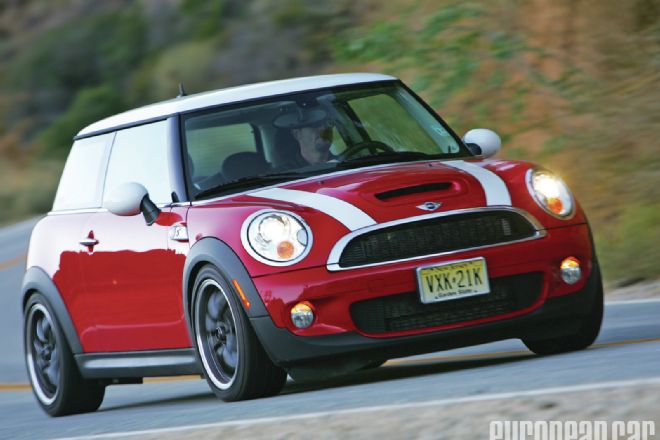The stock intercooler on the Cooper S looks more like a power steering cooler than something designed to support the performance driving the Cooper S is designed to evoke. One lap on the racetrack, a hot summer day, or increased boost levels can easily make this small and extremely under-engineered intercooler prone to heat soak, reducing power, economy, and most of all, fun. To help eliminate this pitfall we contacted Forge Motorsport, an industry leader in intercooler design, to help us out. And while we were at it we also decided to really test out the Cooper S’s newfound efficiency with NM Engineering’s Stage 2 software.
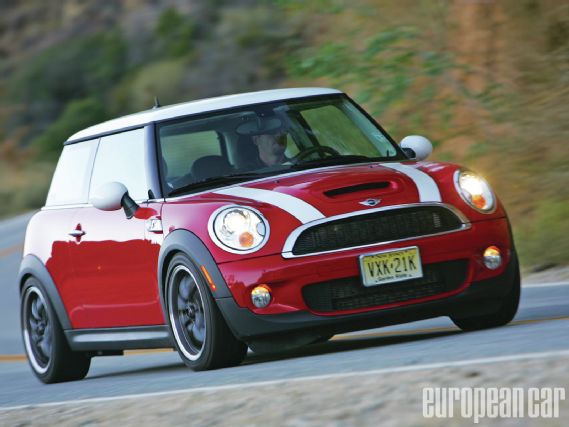 |
2008 Mini Cooper S - Proven
|
2008 Mini Cooper S - Proven
Vehicle Data
Engine: 1.6-liter I4, dohc, 16-valve, turbocharged
Transmission: Six-speed manual
Drivetrain: Front-wheel drive
Mileage: 15,917
Current modifications: NM Engineering Stage 1 flash, NME cat-back exhaust, NME Hi-Flow induction kit, NME discharge pipe, NME charge pipe
Dyno Data
Type: Clayton Mustang dynamometer with Virtual Test Track Software
Transmission test gear: Third
Dyno set weight: 3,300 lb
Fuel grade: 91 octane
Baseline
Temperature: 68F
Humidity: 11%
Peak power: 182 hp @ 6054 rpm
Peak torque: 200 lb-ft @ 2268 rpm
Test Notes
All horsepower and torque numbers are quoted at the wheels. It is also important to keep in mind that a properly calibrated Mustang dyno produces more accurate real-world horsepower and torque numbers. While these numbers might seem low when compared to a Dynojet, down roughly 10 percent, sometimes even greater if the dyno is miscalibrated, what is important is the differences between each dyno run. While the numbers matter, it is the differences between the runs that help prove or disprove the validity of the manufacturer’s horsepower and torque claims
Forge Motorsport Uprated Alloy Intercooler
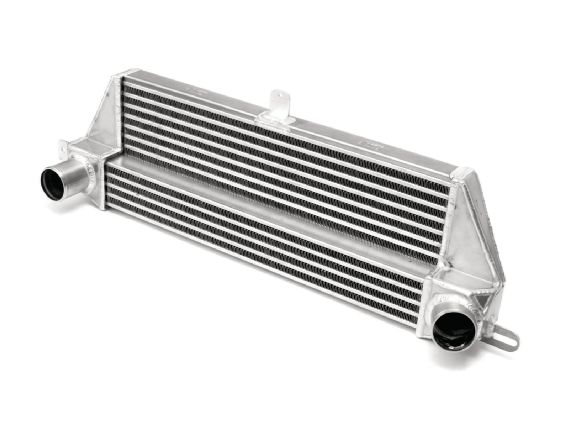 |
2008 Mini Cooper S - Proven
|
2008 Mini Cooper S - Proven
Test 1
Performance
Peak power: 184 hp @ 5922 rpm
Peak torque: 201 lb-ft @ 2889 rpm
Max power gain: 16 hp @ 6830 rpm
Max torque gain: 5 lb-ft @ 4750 rpm
Temperature: 70F
Humidity: 12%
Tools: T25 Torx driver, box cutter, flat-head screwdriver
Parts: Intercooler core, modified front bumper grille
Installation time: 1.5 hours
MSRP: $720
Pros
Direct bolt-on with only minor trimming of the front bumper cover
Reduced intake temperatures
Intercooler core bolts to the factory mounting tabs
Dual-core construction maximizes efficiency in a limited space
250% larger surface area and a 125% thicker base core
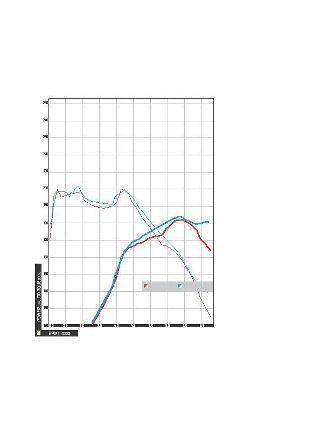 |
Peak Torque: 201 lb-ft
|
Peak Torque: 201 lb-ftPeak Power: 184 hp
Temperature: 70°F Humidity: 12%
Cons
Intercooler core does not appear centered in lower grille opening
The air intake graph represents the difference in temperature levels, between the stock intercooler and Forge Motorsport intercooler. Intake temperature and rpm data used in the graph was extracted from the ECU with Bavarian Technic USB OBD-II cable and software. The temperature data was converted from C to F using a mathematical conversion formula.
Nm Engineering Stage 2 ecu flash
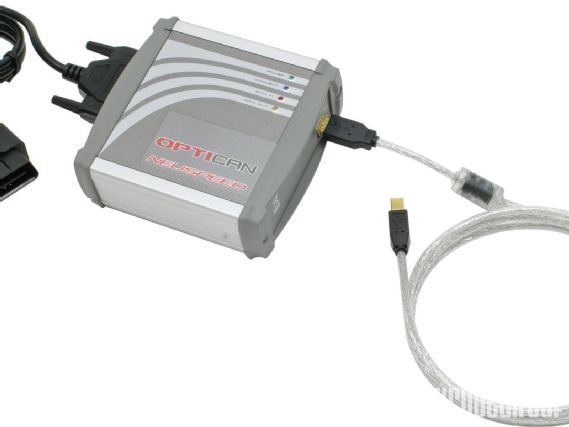 |
2008 Mini Cooper S - Proven
|
2008 Mini Cooper S - Proven
Test 2
Performance
Peak power: 197 hp @ 6133 rpm
Peak torque: 233 lb-ft @ 2738 rpm
Max power gain: 15 hp @ 6151 rpm
Max torque gain: 35 lb-ft @ 2738 rpm
Temperature: 71F
Humidity: 12%
Install Process: OBD Port Flash
Installation time: 25 minutes
MSRP: $500
Pros
Completely reversible with zero physical modifications
Retains all of factory safety protocols
Free lifetime upgrades and free re-flash back to stock programming
100% compatible with all diagnostic software
Fuel, timing and electronic throttle settings have been optimized to take full advantage of the increase in boost pressure
Sport button retains full factory functionally
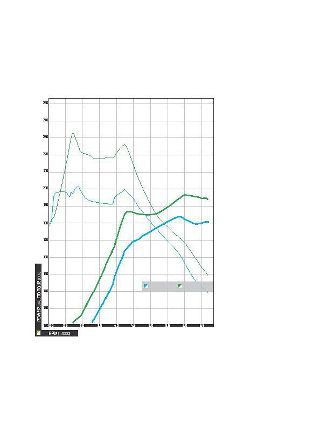 |
Peak Torque: 233 lb-ft
|
Peak Torque: 233 lb-ftPeak Power: 197 hp
Temperature: 71°F Humidity: 12%
Cons
None
Conclusion
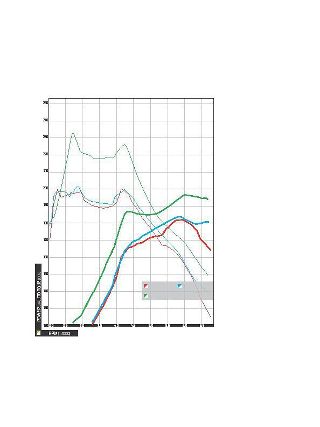 |
Max Torque Gain: 40 lb-ft
|
Max Torque Gain: 40 lb-ftMax Power Gain: 28 hp
The engine’s intercooler and turbocharger are two components that, when properly balanced, generate consistent power and performance. The MINI Cooper S’s stock system is a perfect example of how an imbalanced system can result in inconsistent power and decreased performance. On the dyno, the stock Cooper S power curve is very inconsistent with an intake temperature that more than doubles as the engine moves through the rpm range, resulting in excessive timing retard and power loss. The Forged intercooler corrected the system imbalance and run after run on the dyno the power and the intake temperature stayed consistent. On the road the Forge-equipped Cooper S no longer seemed to give up in the upper rpm range, pulling solid all the way to redline. For good measure we decided to try the NM Engineering Cooper S Stage II higher boost software that recommends a upgraded intercooler, especially when using 91 octane. The result is more power and more fun, and the Forge intercooler was still able to maintain balance. If you own a Cooper S, adding an uprated intercooler in a must.
Costs Summary
Forge Intercooler
$720.00
NM Engineering Flash
$500.00
MSRP total.
$1,220.00

